महिला जननांग विकृति के प्रति एक माँ का बहादुर फैसला
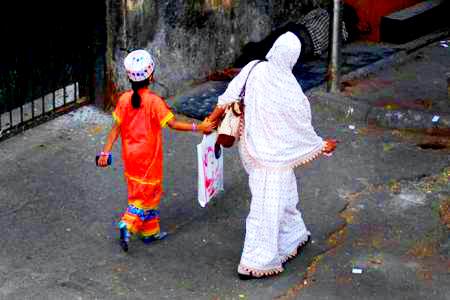
(यह लेख पहली बार 23 मई 2017 को अंग्रेजी में साहियो द्वारा प्रकाशित हुआ था. Read the English version here and the Gujarati translation here.) लेखक: अज्ञात उम्र: 30 देश: यूनाइटेड स्टेट्स खतना शब्द और इस प्रथा से मेरा पहली बार आमना-सामना तब हुआ जब मैं 15 साल की थी। मैं एओएल इंस्टैंट मैसेंजर पर एक दोस्त के साथ चैटिंग कर रही थी और उसने मुझे पूछा क्या मेरा कभी खतना हुआ था। उस समय तक, मैं इस प्रथा के बारे में या इस बात से पूरी तरह अनजान थी कि इसे मेरे बोहरा समुदाय में कम उम्र की लड़कियों पर किया जाता है। मुझे पता नहीं था कि मैं अपनी दोस्त को क्या जवाब दूँ। मैंने सोचा कि शायद मेरा खतना मेरे जन्म होने पर ही किया गया होगा, ठीक वैसे जैसे बच्चे के जन्म पर छट्ठी (नामकरण) या अक़ीका (बकरे की कुर्बानी) किया जाता है। मैंने फौरन ही अपनी माँ से खतना के बारे में पूछा और यह भी पूछा क्या उन्होंने मेरा कभी कराया था या नहीं। उनका जवाब था, “नहीं बेटी, मैंने तुम्हारा नहीं होने दिया था।” और अधिक फुसफुसाहट और काफी घबराई हुई आवाज़ में उनहोंने कहा, “लेकिन किसी को बताना नहीं।” मैंने उनका पीछा किया, मैं उनसे पूछ रही थी आखिर यह होता क्या है। मेरी माँ को यह समझाने में मुश्किल हुई कि यह क्या है या यह क्यों किया जाता है। वह कह पाईं कि लड़कियों के “गुप्तांग” में काटा जाता है। उन्होंने आगे कहा कि हाँ, सात साल की उम्र में वह इससे गुजर चुकी थी, लेकिन उनहोंने अपनी बेटियों के साथ ऐसा नहीं होने दिया, क्योंकि उनके खतना ने उनको भयानक शारीरिक और भावनात्मक दर्द दिया था और वो दर्द उनके साथ जीवन भर रहा है। उस समय, मैं इस बात की अहमियत नहीं समझ पाई कि क्यों मेरी माँ ने मेरे और मेरी बहनों पर खतना नहीं करवाने का फैसला लिया और क्यों वह चाहती थी कि इसके बारे में मैं किसी से कुछ न कहूँ। खतना के बारे में प्राथमिक जानकारी लेने के कुछ वर्षों बाद, मैं मेरी स्थानीय मस्जिद में औरतों की मीटिंग में थी। किसी ने हमारी मौलवी की बीबी, जिनको बहनसाब कहते हैं, उनसे खतना के बारे में पूछा। बहनसाब ने जवाब़ दिया कि यह औरतों में यौन आनंद को बढ़ाने के लिए किया जाता था और यह समुदाय की सभी औरतों के लिए जरूरी है। मैंने अपनी माँ से कुछ साल पहले इससे ठीक उल्टी बात सुनी थी, और बहनसाब की बातें मुझे चक्कर में डाल रही थीं। हाँ, जब बहनसाब ने कहा कि यह प्रथा सब औरतों के लिए जरूरी थी, तब मुझे समझ में आया की क्यों मेरी माँ ने मुझे किसी को यह बताने से मना किया था कि मेरा खतना नहीं हुआ है। मेरी माँ को डर था समुदाय के आदेश के खिलाफ जाने पर उनके या उनके परिवार के साथ बुरा हो सकता था, और इसीलिए, उनहोंने अपना प्रगतिशील फैसला सब से छुपा के रखा। आज, एक व्यस्क महिला के रूप में मैं खतना के शारीरिक और भावनात्मक नुक्सान को समझ सकती हूँ, और मैं अपनी माँ के फैसले की सराहना करती हूँ। मैं सोच भी नहीं सकती हूँ जिन महिलाओं के साथ यह हुआ उनको अपनी रोजमर्रा की जिंदगी में क्या झेलना पड़ता होगा। मुझे लगातार डर लगता है कि यह प्रथा अभी भी जारी है (हालाँकि यह अधिकतर गुप्त है) और “परंपरा” के अलावा अधिकतर लोगों के पास कोई वाजिब मेडिकल कारण नहीं हैं इसे जारी रखने के लिए। मुझे उम्मीद है कि जैसे-जैसे लोग इस प्रथा और इससे जुड़े नुक्सान के बारे में जानते जाएँगे, समुदाय के भीतरसे परंपरा के नाम पर छोटी बच्चियों के अंग की विकृति की इस नुक्सानदायक प्रथा को रोकने की कोशिशें बढ़ती जाएँगी।
I underwent Khatna but did not let it happen to my daughters
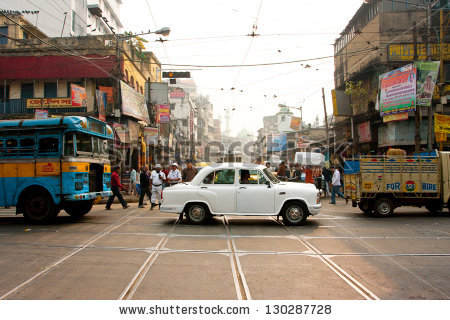
By: Anonymous Country of Current Residence: United StatesCountry of Birth: IndiaAge: 57 It was a day in June, 1966, in India. I was seven years old and sitting with my mother, listening to a story she read to me from a newspaper. Midway through reading the story, she casually mentioned to me that we were going to Aunty R’s house the next evening with my grandmother as well. I was excited to go somewhere with my mother and grandmother, and to take a car ride to get to the place. Out of curiosity, I asked my mother why we were going over to Aunty R’s house, and she told me we were going for something very important that needed to be taken care of. On the car ride there, I heard my mother and grandmother discuss that they could not accept water to drink from Aunty R if it was offered to them, because the work she carries out is considered dirty. Being of an inquisitive mind, I asked my mother what she meant. She shushed me and said, “You are too little to understand.” On reaching Aunty R’s house, we were sent upstairs and sat down in a big hall. A few minutes later, she joined us and sat with us and talked for a bit. Then, she went inside another room and came back with a big white sheet which she spread out onto the floor. As she did this, I watched her movements with a lot of confusion. She then asked me to come lie down on the sheet and to shut my eyes, which I did. She covered me with another sheet and pulled my panty down. The next thing I felt was a pinch down there, and I screamed. She told me not to worry. All was done. On our way home I felt discomfort and my mother told me that all would be fine and that there was nothing to worry about. When we reached home I needed to use the bathroom and saw some blood oozing out of me. It scared me a bit. Again, my mother convinced me that all would be fine. I asked her what our trip to Aunty R’s was about and why I had to undergo it. She said, “all little girls go through that procedure.” After a few days, I forgot about the incident. As I grew older and I went into my teen years I realized that for no good reason something had been done to my private part. Something that was not very much required. After speaking to my mother about it, I realized she had gotten it done to me only because it was a tradition. She had gone through the same process. It had no religious significance. Years went by and one day, I became a mother too. When my daughter came of age, I made the decision that I would not let her go through this mental torture, which was just a tradition and had nothing to do from a religious standpoint. When I made this decision, neither my mother nor my mother-in-law objected to it; they did not pressure me into having my girls undergo the ordeal. To conclude, I would like to add that it definitely did affect my sex life negatively and I did not want the same to be true for my girls. This article was later posted in Gujarati. Read the full article here.
Telling one’s personal Khatna story can lead to another’s not continuing FGM/C too
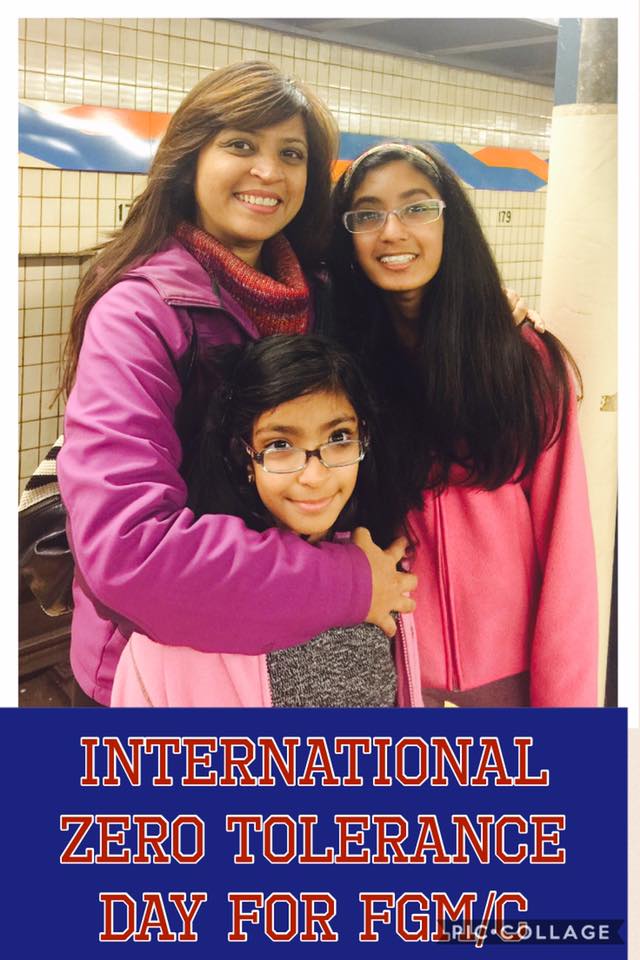
By Alifya Sulemanji Country: United States In the past few years, we have seen an increase in the awareness of FGM/C in the Dawoodi Bohra community, and it has led to many discussions amongst community members. There is a large number of people who were hesitant about the procedure, and due to a lack of awareness about the harmful effects of FGM/C have been carrying on with this ritual. Today, there is so much more information available for people who question the practice and want to know what it really entails. Today, their questions can be answered. Today, because of media awareness, even men from our community know that Khatna has happened to women they know; whereas for decades they were not aware. Last year, after the New York Jammat (congregation) issued a letter to the entire community that banned FGM/C, many people in the community became aware that khatna was an act that violated human rights. The letter also made them aware that if anyone attempted to carry out FGM/C and they were caught, they would be prosecuted for doing so. Recently, a mother from the community approached me and told me that she disliked that her older daughter had to go through khatna because her in-laws had pressured that the girl goes through it. She also told me that she was very happy that her younger daughter doesn’t have to go through this atrocity. She told me it was commendable to see that we were working to raise awareness about harmful effects of FGM/C within the Dawoodi Bohra community. Another friend from India recently wrote me and told me that since she has read so much about FGM/C in the media, she has been able to gather the courage to say no to having her daughter undergo it. She also told me that she felt encouraged to say no to the practice after reading my Facebook post against Khatna, and after reading my FGM/C story on the Sahiyo website. My friend told me that she is still facing pressure from her mother-in-law to get it done to her daughter, but she is now trying her best to ensure that situation does not occur. She also told me that because or her own decision to not have her daughter undergo it, she has seen a ripple effect, and another friend of hers has also gathered courage to speak up and stand up for her daughter to ensure they don’t undergo it as well. It is important to teach people that there is nothing good about khatna, it only leads to physical mental turmoil for little girls and women. The theory behind this ritual is that after a girl has her khatna done, she will lose her libido and therefore, she will not stray from the marriage bed, and she will be loyal to her husband. This type of thinking is completely a misconception and is misinformation passed down by religious leaders. I have many non-Bohra/Muslim friends who don’t go through this procedure and who did not indulge in sex before they were married or who never engage in adultery, whereas I know women from the Bohra community who have had premarital sex in spite of undergoing khatna. Khatna has nothing to do with one’s sexual desire, but it certainly does takes away the woman’s pleasure or sexual satisfaction, which is unfair and cruel.
From birth to motherhood, a Singaporean Malay’s experience of Female Genital Cutting
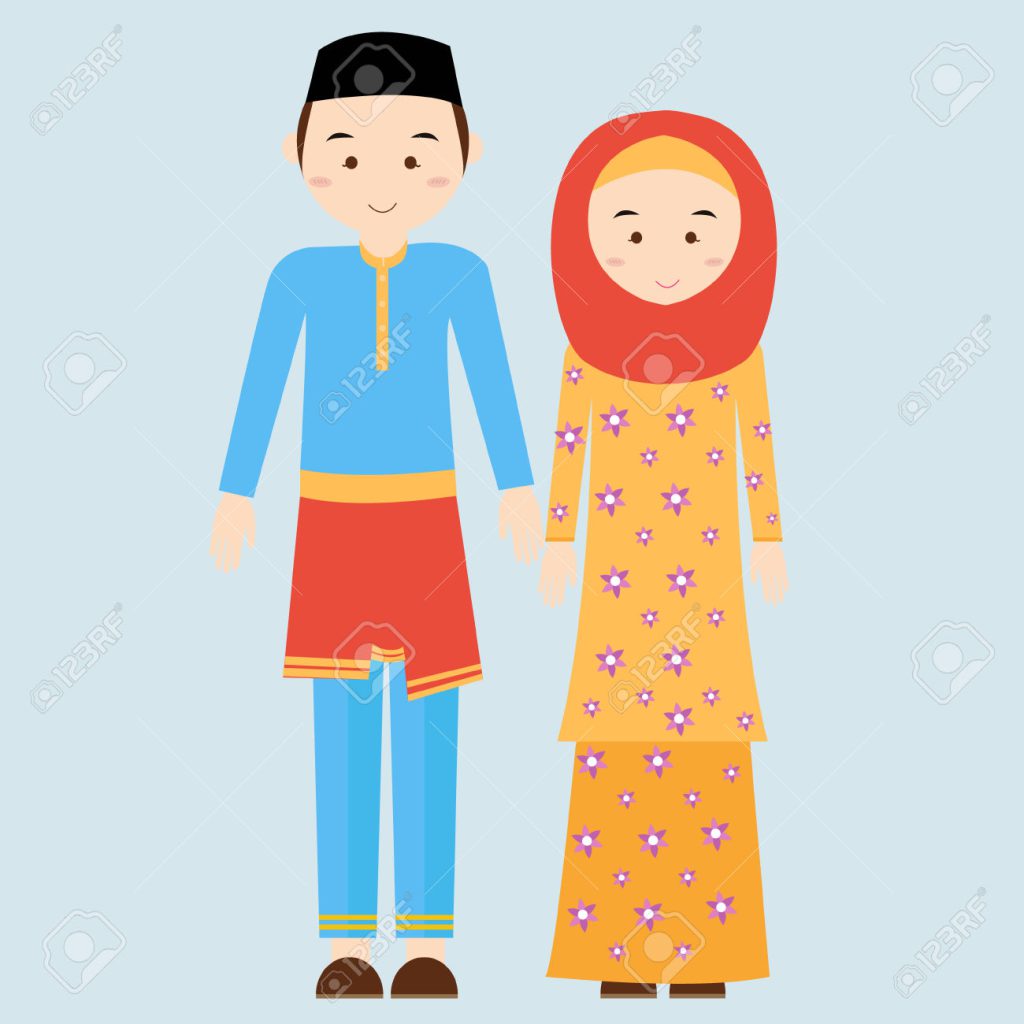
By: Anonymous Country: Singapore Community: Malay Muslim Growing up: I was told as a child, that every girl had to go through it. There is basically NOBODY that you know who hasn’t gone through it. And I BELIEVED everything my mother said. Perceptions Ingrained in our Minds: It is dirty, unhygienic, curbs your sexual desires. Basically, what their mothers tell them, they relay it back to us. Working adult: I became a nurse. I studied, learned, saw the anatomy of the human body. As a nurse, I cleaned the vagina of women of different ethnicities. Of course, I noticed the difference. They had the hood and the two labia folds, and I did not. At that time, as a Malay Muslim, I firmly believed that “my vagina is cleaner” than those who were not circumcised. I felt I belonged to a much “higher status” because I was “cut” and they were not. My fellow female Muslim nurses shared the same sentiments. Marriage: I had an inter-racial Muslim marriage. I realized my sexual desire plummeted and I wasn’t really interested in sex much longer. I had a private conversation with my husband about it, and he was surprised that FGC was done in many Asian countries. He mentioned that as a Muslim himself, in his own country, FGC was not done. In his country none of his sisters underwent FGC. Delivery: I had a natural home birth for my first born daughter, assisted by my own husband. The way the delivery occurred was unplanned, but it was the most beautiful experience for us both. Post-Partum Worries: The natural delivery left a stinging burning sensation on my clitoris region. I naturally thought it will go away. But it prolonged much longer that I expected. A few months passed, and I still felt a strange sensation in my clitoris region. When I urinated, it felt like someone had punched me – it was sore. I refused to go for a health check-up as I didn’t want ANYONE to touch me. I didn’t want to touch it myself. It’s coming to 10 months now past my baby’s birth, and my husband and I haven’t resumed sex yet. At first, I was fearful of the pain that might arise. Then, I didn’t want to experience any more intermittent sore sensation in my clitoris region. Thirdly, I didn’t have the sexual drive or desire mainly because I was breastfeeding. I deeply pondered: Why am I still feeling this? Why does it still felt sore? Is it because of the FGC that my mother made sure I underwent when I was still a baby? I haven’t talked to my mother about it yet. I guess no one talks openly about it. They just “snip it” when you’re a baby and everyone stays silent about it. I had many questions in mind! Was it done by trained personnel? Does the answer to that question matter anyway, since it’s wrong to do it? My Baby and Social Pressure about FGC: My mother kept insisting that I bring my baby for “sunat” to the clinic. She said it will be “over before you know it” – swiftly done. My husband, on the other hand, refused to have it done to our daughter. He said women in his country did not have it done. I started my own journey of reading and gaining more knowledge on FGC. In 2016, at 30 years of age, it affects me now. I was upset that my mother did it purely due to social pressure. Even if you’re an educated woman, social pressure can still influence the way you make a decision. I was in a mosque a few weeks back, a lady in her 50-60s approached me and chatted about my baby. She handed me her name card which indicated her business services. It read, “sunat perempuan”. I was shocked and disappointed. It is 2017, and still, this is being done by an unlicensed passerby who easily roamed the community promoting her services. At present: I joined a Facebook Group for young mothers in Singapore where women’s topics are discussed. One of the issues asked by many young mothers is “WHERE can I take my NEWBORN DAUGHTER for sunat? Which clinic is best?” This question showed that young educated mothers are still unaware of FGC and its non-relation to Islam. They continue it because THEIR own mothers tell them to do it or that it is the NORM to perform “sunat” after you give birth to your newborn. There they go, commenting and discussing the rate of several clinics, the packages that come with it (Ear Piercing + Sunat) and their good experience with the doctors who provided such packages to benefit themselves. Every time I see such questions, I cringe. I commented on those posts about FGC but nobody has taken notice of my comments. Yes, I do hear mother’s voice that they are fearful to see the procedure done on their baby girls, YET they want it done. How conflicting! Other mothers who had undergone it with their newborn baby girls started giving reassurance that “it’ll be over before you know it. Stay strong mummy!” Subsequently, I messaged the mothers privately and gave them social media links (videos/texts) to educate themselves on FGC, especially on Islamic & social views. It’s still a very long road to adjust the mindset of the Singapore Malay Muslim community on FGC. It’s done openly without a tinge of guilt in their hearts. I’m sad it was done on me but I will NEVER let it happen to my offsprings.When we educate the women, we educate the entire nation. Women have to choose wisely what is right and wrong. Don’t succumb to social pressure – just because everyone is doing it, doesn’t make it right.
I will not support khatna even if my in-laws pressurise me
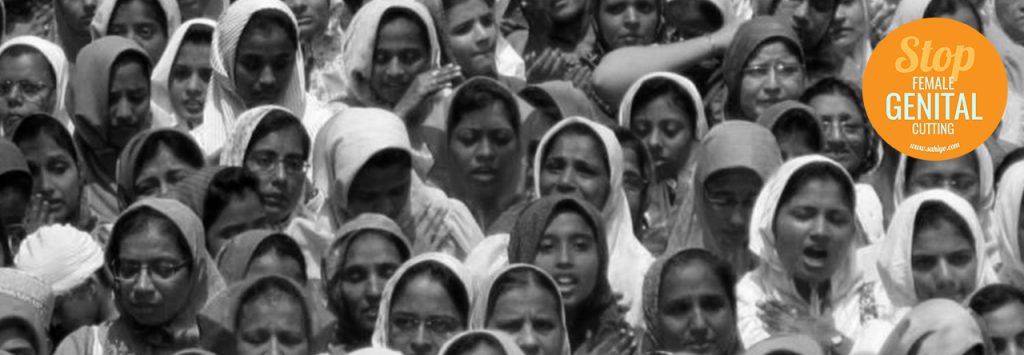
by Ummehani Age: 28 Country: India I was all of five and do not remember much. What I do remember is my mum and my sister taking me to some Aunty’s house on the pretext of meeting a relative. That unknown Aunty made me sleep on a soft table kind of a thing and asked me not to worry at all. She then pulled my panties down and had some knife sort of thing. I am not sure what it was. She prayed something and cut some part of my genitals…again, I’m not sure what. She put some medicine on a cotton ball, put it down there, and made me wear my panty. She asked my mum to feed me coconut water thrice a day for two days. As far as I remember, I didn’t ask my mum or my sister anything about what had happened to me. I was so shocked and taken aback. The next day, my panty was stained. My mum made me wear a new one and I guess it stopped bleeding thereafter. I don’t think I had difficulty peeing – of course, there must have been a little discomfort for sure but I have no vivid memories of it. People of our Bohra Muslim community say that khatna is a mandatory ritual and we have to carry it out for every little girl and boy. They say it’s a dirty part that needs to be cut. I don’t know how far this is true. I also don’t know whether girls from other communities enjoy better sex or not. There have been many reports about this that I am unsure of. There is actually a lot of vagueness on this topic that I would like to have some clarification on. I am married and my husband is pretty cool and modern. I would not want khatna for my daughter, but I don’t know if my in-laws and my parents would agree if I differed with them on this ritual. Even if they insist on having it done, I still don’t support the practice. I will not do it for my daughter.
I deeply resented what was done to my most intimate parts without my permission
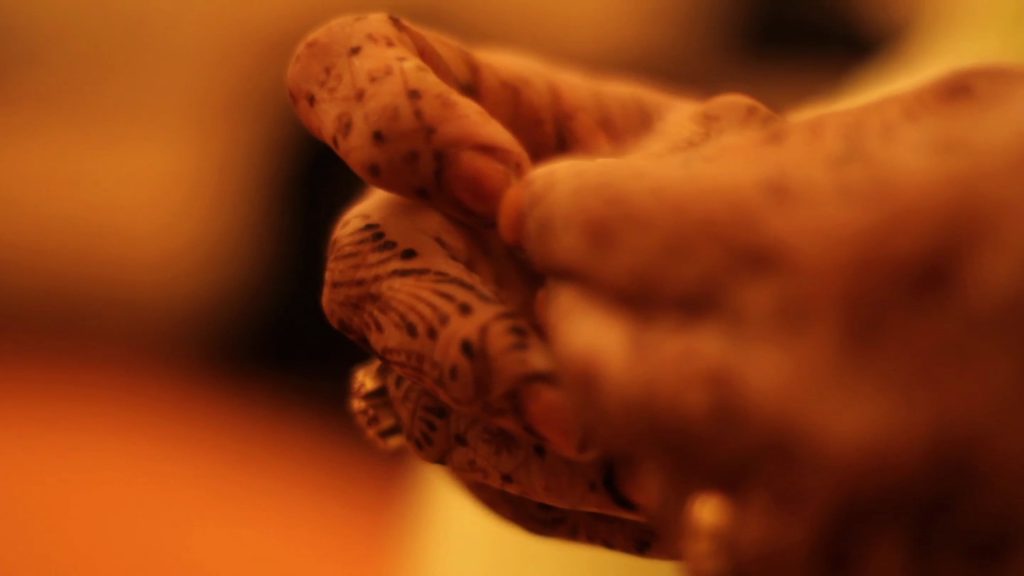
Age: 64 Country: United States (Read the Hindi translation of this article here.) It’s time to take a stand against Female Genital Mutilation. It’s long overdue. It wasn’t right when my mother went through it (I assume she did but I never asked her about it), it wasn’t right when I went through it and it wasn’t right when I put my daughter through it (under pressure from my parents). I have a hazy recollection of the day the FGM was performed on me back in India. I was approximately six or seven years old. My brother, who was older than me, was sent away for the day to play at a friend’s house. A lady, who I’d never seen before, came over and I was taken to my parents’ bedroom where the FGM was performed. I seem to have blocked the uncomfortable memory of that event and day – except for that image of the lady and my mom holding me down. I’m not sure what explanation was given to me about the reason why this had to be done. I remember deeply resenting what was done to the most intimate part of my body without my permission – akin to being violated. Most of all, I resent the fact that the person whom I trusted the most in life at that young age, allowed it to happen. Maybe, that is why, there is a part of me that cannot forgive my mom and I am amazed that my daughter has forgiven me for doing the exact same thing that I resented being done to me. FGM is an insidious custom using the cloak of religion to appear correct. It’s only a matter of time when the untiring work of organizations like Sahiyo will stop this barbaric tradition rooted in a twisted interpretation of Islamic traditions. Till the Syedna denounces FGM, and puts his words into action, I will be ashamed to call myself a Dawoodi Bohra. (Cover photo courtesy: ‘A Pinch of Skin’)
I did not circumcise my daughters, says a Malay Muslim mother

(Originally posted by BEYONDHIJABSG on 3 FEBRUARY, 2016. Republished here with permission.) Country: Singapore Community: Malay By Zubaida Ali When my daughters were born, I made the decision not to have them circumcised. Female circumcision is one of the most puzzling birth rituals in Muslim society. It has no health or aesthetic value whatsoever. Circumcision was usually performed by a traditional midwife but now it is performed by a medical doctor at the clinic for a fee. Typically, parents will have it done on their baby one month after birth and like all surgical procedures, it endangers the infant to the risk of infection, pain, and trauma. Before I made the decision to cut or not to cut, I asked my friends and searched the internet for legitimacy. Why, where and how was this done, I couldn’t find any valid answers. Then I turned to the one place where Muslims go to for answers, the Holy Qur’an. To my surprise, there are no verses supporting it in the Qur’an. There’s only a vague hadith about male circumcision. Yet female circumcision is accepted and performed by all Muslim families I know like a sacred duty. It is even surprising for me to discover that it varies with different sects of Muslims all over the world, and with different degrees of severity. From a pinprick to show blood to removal of the clitoral hood (which is what is done in Singapore) to having major parts of the labia removed like in some parts of Africa and Middle-East. I will require more validity from theological and medical sources before I hand over my child for such a procedure. As a Muslim and a mother, my reason for not allowing my child to undergo the procedure is why would Allah create an imperfect human body? Why would Allah create a body that requires the tampering and removal of anything so natural? My two girls now live freely and uncut, and I have never regretted my decision to not violate their bodies for a cultural practice that has no place or validity in our rational society. Just say no to female circumcision.
If jannat lies at the foot of my mother, why did khatna happen to me?

(Trigger Warning: The story here is another woman’s experience of FGC. We thank her for being brave enough to share it with us.) By Insiya Lokhandwala Age: 33 Country: Mumbai, India I remember going to Pune for vacation when I was seven. Once there, my eldest masi (aunt) took me to a building where there was an old woman who asked me to lay down and open my legs. I remember being scared. Then I saw a razor in her hand and I screamed at her to let me go. My aunt and mom pinned me down on the ground and said, “It will be over in a minute”. I remember the unbearable pain and then the old woman bandaged me down there and told me that I would be OK in a day or two. On our way home my aunt bought me a balloon and ice cream. She told me not to mention what had to me to my brothers who were around my age. Honestly, I have hated balloons since then and I don’t think I can forgive what they did to me. No religion in the world can ask mothers to put their little girls through this pain. I wonder how so many mothers can do this to their own girl children. No matter the consequences of what might happen to me for telling my story, this practice must be stopped. The practice was a way of controlling women in ancient times. I think our community has advanced enough to know what’s right and what’s wrong. Khatna is wrong. What happened to me can’t be undone, but we can stop this from happening to future girls. Let our children be children without trauma. Don’t tarnish their childhood memories by having girls undergo unforgiving situations. They say jannat lies at the foot of a mother, but if this practice continues, no child will be able to trust in this saying.
A Little Piece of Skin

Nationality: USA Ethnicity: Indian (Gujarati) Author: Anonymous 30-year-old I was not more than seven years old when I recall going into a medical complex on a quiet Sunday afternoon accompanied by my mother and our family friend. My mother told me it was time for my “khatna” or circumcision. She explained it as a rite of passage, something all the little girls in our Dawoodi Bohra community had to do. I remember feeling scared, but didn’t know exactly why. I just had a feeling something terrible was about to happen to me as our friend unlocked the building with her keys and we continued into her desolate practice. We went into one of the brightly colored rooms where alphabet wallpaper bordered me in. I started crying before it even happened while she crooned, “all I’m going to do is remove a liiiitle piece of skin.” Totally exposed, I was asked to relax and read the wallpapered alphabet backwards. My mother helped hold me still while I was flat on my back and in hysterics. The snip, which took maybe half a second was followed by a sharp-shooting pain that seemed to last in that moment, for eternity. I bled for three days and then it was over. It wasn’t until I was nineteen, the end of my freshman year in college that I stumbled upon an article from one of my classes, describing the experience of a woman who had been a victim of FGM, or female genital mutilation. After reading the article once, I was immediately reminded of that Sunday afternoon twelve years prior. There was no way the same thing could have been done to me. My seven-year old perspective of a little piece of skin being removed was analogous to that of a piece of skin from the top layer of the palm of a hand. My cousin used to stick a needle through that top layer and tell me it was magic that the needle was sticking there. She eventually revealed her secret and showed me the protective top layer that separated her hand from the skin. I guess like that layer, I always figured it would grow back. Still the feeling of uncertainty drove me to call a couple of peers and academics in my community to ask whether our “khatna” was in fact a partial removal of my clitoris. Their answer confirmed the worst of my fears. My next concern of “how much?” tormented me, and after a frantic visit to the school nurse, I got my answer: “There’s only a remnant left,” said the nurse practitioner who examined me. *** I don’t believe my discovery was adequately addressed the first time as the rest of my college experience was consumed by bouts of grief, rage, frustration, insecurity, and depression. My feelings only grew stronger as I got older and had more encounters with the opposite sex. My overcompensating, defensive attitude permeated all aspects of my life—friends, family, work, and academics. It wasn’t until my mid-20s, when I shared with my gynecologist during a routine visit what happened to me, that I was given three names of specialized therapists in the area with whom I could speak about my concerns. My insurance provider at the time would not cover therapy. Fortunately, one of three therapists agreed to see me for a discounted out-of-pocket fee because she was interested in my case. To this day, I am so grateful for the opportunity I had to talk through what happened to me in a safe space as such resources and treatment were unavailable to me at home or in my community. I learned it was ok to talk about sex, explore my sexuality, and sexual feelings. I was even prescribed homework to assist me in doing so. At the time of the therapy, I had been sexually active and my partner, who was incredibly supportive, was also invited to participate in one of my sessions. When growing up, I never thought I would have sex before marriage. The idea behind the circumcision was to curb any sexual appetite I might have. Ironically, once I learned this had happened, I wanted nothing more than to have sex to see what my capabilities were. While I was incredibly nervous and insecure about having sex, I was more open to losing my virginity in the context of a serious relationship, which is how it happened for me. One of my main insecurities about sex was that I felt like I was driving without the headlights on. Often times, I didn’t know where to go or how to guide my driver. I felt like a failure. To this day, I still have not experienced orgasm. While sex is enjoyable for me and I could describe what I can achieve as a “mini-climax”, I am bothered by the fact that I may never get to experience this wonderful part of life. While it’s no secret many women who have not been “circumcised” struggle with the same issues, a part of me will always wonder if that would have been true for me had this not happened. I will never know.
The Good Mother

A still from the film ‘ A Pinch of Skin’ which depicts the practice of Female Genital Cutting or ‘Khatna’ in India. (The piece below is the film-maker’s exploration on filming/’framing’ the ‘Good Mother’ for a practice which she (the film-maker) felt was a violation but her protagonist thought it to be in the best interests of her daughter.) They said ‘to be a good mother you must take your daughter through the ritual’. They said it with conviction and sincere eyes; but I found myself flinching. Flinching, because the belief that had carried me to different cities and this stranger’s drawing room was at loggerheads with her ideas. Yet, as I ate her biscuits and drank her tea, I saw myself noticing those believing eyes with which she was opening up to a complete stranger, me. As I sat opposite ‘the good mother’, the ‘genuine person’, I was shrinking – ‘I believe what you do is “wrong”. It is just not right.’ And as I thought of ways to tell her so, her faith shook me. Not only the faith with which she did ‘it’, but also the faith with which she let me in on it. Between us then, there were no secrets. She told me with candor that she got her daughter ‘cut’ in the name of a tradition called Khatna (a practice she believes her prophet endorses). It had to be done to every ‘good girl’. Good girl is strange phrase I have found. Growing up, so many people in their solicited/unsolicited ways had made sure I knew the phrase well, especially my mother. Going to a Christian school I knew I had to keep my hair tied and skirts long. Those pretty standard things girls are schooled in. But the conflict was, I knew myself to be a good person but I didn’t want to be a good girl. And every now and then my mother and I would fight for that contested parable-like existence – the good girl. She, the sweet stranger, further went on to qualify the parable itself. ‘you know the good girl, who never falls in love (before marriage) and never strays out (after marriage).’ Pretty standard, I thought. The same, in fact, as my mother would have once said. ‘Boys are dangerous. Sexuality is a no-go land’. Why, then, did I sit opposite this stranger, holding my camera, leading my gaze in her thoughts? ‘Aap jo bologe mein waisa hi film mein dikhaungi. Kuch change nahin karungi.’ (Whatever you tell me, I will depict that in my film as it is. I will not tamper with your version.) I found myself saying this to everyone, everywhere. Why? Because even then I could tell that I would be cheating them if I don’t put their standpoint further. Truth is not absolute nor can people be. What these women held close to their heart was not just a tradition; but a belief they upheld with the best interests of their daughters in mind. And this is where everything gets difficult to negotiate. ‘One-million strong community of Dawoodi Bohras are known to practice Type 1 of female genital cutting known as Khatna or Sunnat. A practice, they believe which serves as a rite of passage for girls born into this community. This is usually done to girls mostly at the age of seven; seven believed to be the right year, for the girl would neither forget it nor be harmed much’. I remember my thirteenth year to be a particularly troublesome one. Everyday without fail my mother and I would lock horns with each other on something or the other. One such topic of contention – being ‘unclean’ during my periods. I wasn’t allowed to ‘touch’ god or enter god’s room. She was so stern in her beliefs as if god was checking who was bleeding who was not. Sitting in this sweet lady’s drawing room I could hardly skip over the similarities in a few notions. Who rolls these practices, these thoughts, which invariably contain women and anything remotely related to their sexual being? Who is checking? Who deems such notions of the good girl ? And yet, why is it that women are subjected to sexual violence of all kinds imagined? One lady from the documentary added, ‘Women’s sexuality needs to be moderated as they are the cause of all evil. Even the rapes.’ I was shocked, stunned, enraged. But how is this any different from the absurd idea of me being unclean during my periods? These are beliefs that mothers maintain to see their daughter through on the “good” path of modesty, a path of least resistance; without questioning, without challenging, without giving it any kind of fight, if at all. II The lady in that drawing room became the highlight of my film. I have over the years seen and heard audience gasp, mutter, whisper among themselves as they hear what she believed (in earnest, if I may add). Every time I saw those unknown faces in the dim light of the auditorium, I shrunk. If only I could add, You are seeing her hands and feet. Believe me you would feel differently if you saw her eyes. A still from the film. The documentary mostly features silhouettes, hands and feet along with abstract visuals to gaurd the identity of the subjects in the film. — (Dear lady, if you ever read this – I apologize. I apologize that people see you in a monochrome, as if you are the only one indoctrinated. But I have no doubt that you are a good mother. And I will remember you all my life.) By Priya Goswami Read more about A Pinch of Skin here: https://www.facebook.com/APinchofSkin/
